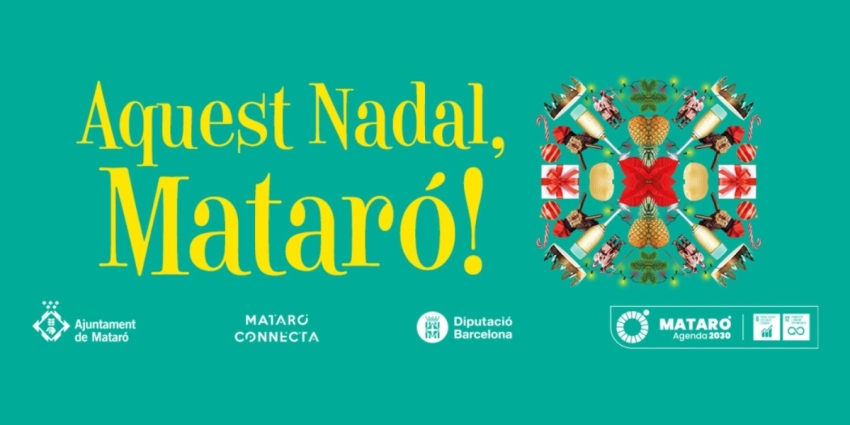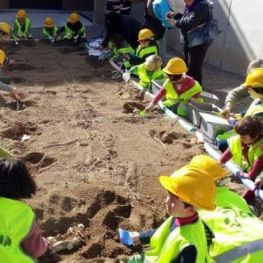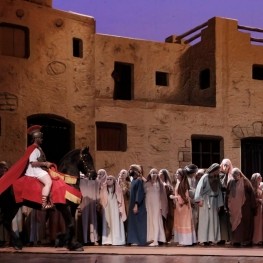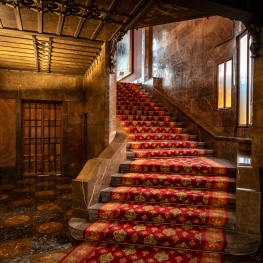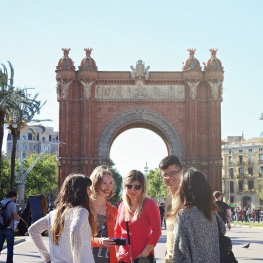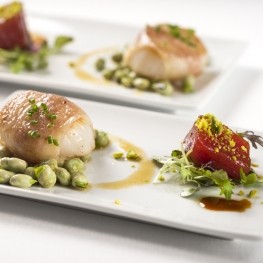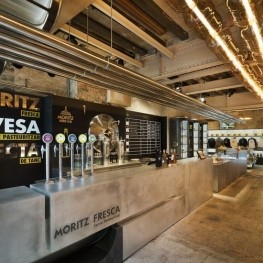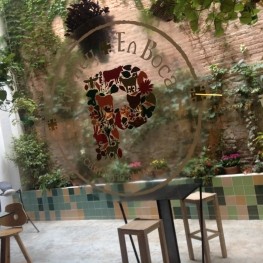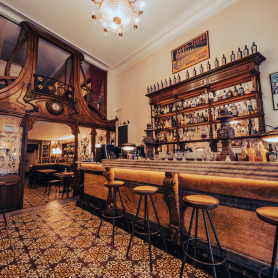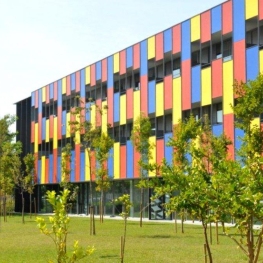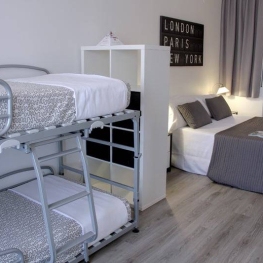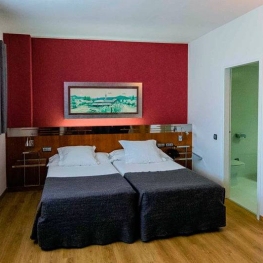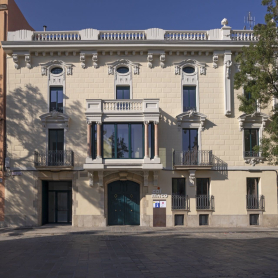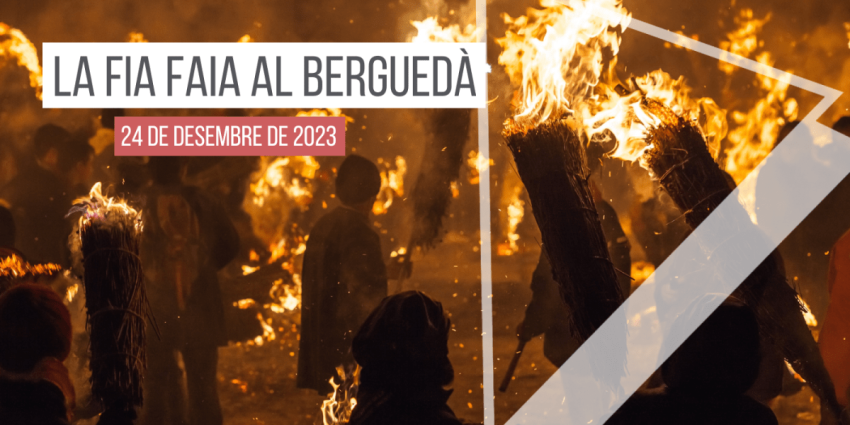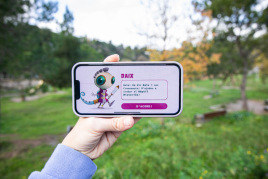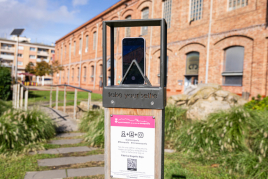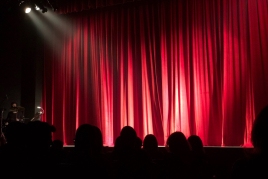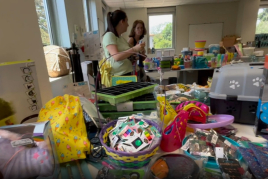The Academy of the Distrustfuls
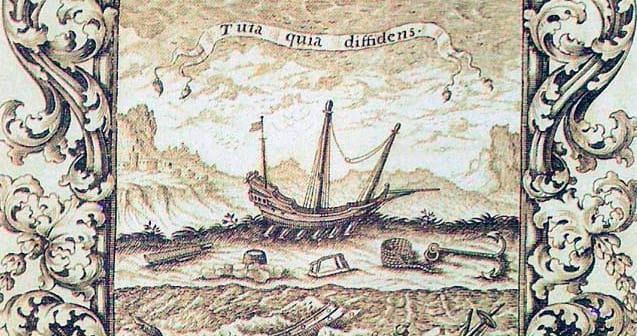
During the early eighteenth century the Catalan aristocracy educated talent was organized to defend and deepen their history and culture. This was common practice in other European cities and in Barcelona , this institution was known with the name of the Academy Distrustful. Indeed, this is the institution that we meet along this route, along with the members who formed and its history.
Also, see the mark left within the Catalan culture and continues today, not only in Barcelona but also other areas of Catalonia.
The Academy of the Distrustful
 The Academy of the Distrustful (Desconfiats) or Distrustful Academy was an institution created by scholars aristocrats in the city of Barcelona in 1700 with the aim of promoting the study of language, culture and Catalan history through evenings dedicated to the literature, philosophy, etc.. His dedication to the Virgin of Montserrat and was also known by the nickname "Montserratina School" and its members as the "wise del Born."
The Academy of the Distrustful (Desconfiats) or Distrustful Academy was an institution created by scholars aristocrats in the city of Barcelona in 1700 with the aim of promoting the study of language, culture and Catalan history through evenings dedicated to the literature, philosophy, etc.. His dedication to the Virgin of Montserrat and was also known by the nickname "Montserratina School" and its members as the "wise del Born."
Proceedings of the Academy of the Distrustful took place at the Palau de Pablo Ignacio de Dalmases and Ros, Current Palau Dalmases, which was located in Montcada and made ??a solemn manner.
Events were held until 1703, and the institution was kept alive until Philip V entered the city in 1714. Was then, when it finally closed. However, in 1729 the Academy of Fine Arts in Barcelona, ??which somehow took over in his task arises.
Distrustful Members
Of the members who formed the Academy Distrustful include its chief representative and founder: i Dalmases Pau Ignasi de Ros He was a scholar who admired European elite academies and wanted the Academy of the Distrustful out more..
 Apart from him, there were fourteen members were also part of the founding of the Academy of the Distrustful From among them stands out.:
Apart from him, there were fourteen members were also part of the founding of the Academy of the Distrustful From among them stands out.:
Josep Antoni Rubi i Boixadors and Marqués de Rubí was a military very prominent and close to Carlos III. As a member and captain of the Colonel took part in many battles and, indirectly, became Viceroy of cities like Mallorca, Naples and Sardinia.
Joan Antoni de Pinos Boixadors Pacs i was also captain of the Colonel and was elected president of the Academy of the Distrustful.
Antoni d'Aimeric Paguera i was one of the most active members in the Academy and was also part of the Covenant of Vigatans as Catalan representative in the signing of Genoa with England.
I Barutell Llorenç d'Erill, Francesc de Junyent i Vergós, Josep Amat Planella, Alexandre d'Aguilar i Palau, Francesc de Josa i d'Agulló, Josep Taverner i d'Ardena, Agustí Copons i Copons , Felip de Ferran i Sacirera, Josep Clua i Granyena, Josep Rius i Falguera, Francesc Sans Miquel l and Josep Romaguera were the other members who were part of the Academy of the Distrustful, which consisted of a total of 30 members of both Catalan Castilian origin.
Pau Ignasi de Ros i Dalmases
 I Dalmases Pau Ignasi de Ros was a Catalan scholar from a family of merchants. He studied arts and philosophy, spoke Castilian and French and his mood was not expected to follow the family tradition in the business sector.
I Dalmases Pau Ignasi de Ros was a Catalan scholar from a family of merchants. He studied arts and philosophy, spoke Castilian and French and his mood was not expected to follow the family tradition in the business sector.
He had a great admiration for everything that moved in European cities and lived in Madrid and Paris. Knower of the Courts of these cities wanted Barcelona will feature comparable to the institution of these places. For this reason he founded the Academy of the Distrustful.
In 1701, Felipe V appointed him chronicler of the Principality of Catalonia, but soon to be removed from office and imprisoned for suspicion that they had to Pau Ignasi de Ros Dalmases i was defender of the Austrian cause. No they were wrong and that from 1709 defender Carlos III was declared and became his ambassador to England.
Once fall city Barcelona ., on September 11, 1714, Felipe V agreed to leave the city again, withdrawing the qualifications awarded by the Archduke Charles to his death, he devoted himself to what had always been passionate about: culture , literature, history ...
Lineage Dalmases
Pau Ignasi de Ros Dalmases i came from a family with a major lineage within Catalonia.
 To find its origins must go back to the fourteenth century and moving to Sant Martí Sesgueioles in the current region of Anoia. But it is not until the early seventeenth century we find that Pau Solà Dalmases i had one of the most notable trades of family members. The office of fur, consisting buy wool and prepare it for sale to the weavers, dyers and halts, very typical in this region.
To find its origins must go back to the fourteenth century and moving to Sant Martí Sesgueioles in the current region of Anoia. But it is not until the early seventeenth century we find that Pau Solà Dalmases i had one of the most notable trades of family members. The office of fur, consisting buy wool and prepare it for sale to the weavers, dyers and halts, very typical in this region.
In fact, it is this same Pau Dalmases i Solà who moves to Barcelona to trade different products. Your child will also be devoted to trade and be the father of Dalmases i Ignasi Pau Ros.
The benefits of business, allow them to purchase different properties, including several houses and shops in the city of Barcelona , an old Gothic palace in Montcada Street, the Tower of Pierola in Hostalets of Pierola and a country house in Cabrera Mataró ( Cabrera de Mar ).
Tower Pierola
 Tower Pierola arrives in the hands of the family Dalmases late seventeenth century, through the purchase makes the merchant Dalmases i Pau Castells.
Tower Pierola arrives in the hands of the family Dalmases late seventeenth century, through the purchase makes the merchant Dalmases i Pau Castells.
Since that time, is used for the collection of taxes and as summer house, but its current inhabitants have restaurant. They are the descendants of the family Dalmases was united in marriage with family Fontcuberta.
The can see the path of the Pilgrims on Montserrat, right over the houses of the island ( Pierola ). The sweeping windows and the majesty of its construction, in addition to continue to have a good overview of the Valley Pierola from an exceptional point.
Palau Dalmases
The Palau Dalmases is an old Baroque building in Montcada Street in the city of Barcelona . It was renovated several times and today the chapel dating from the fifteenth century is preserved, which has a very well crafted decorations to the starry vault, with images of angels and an epiphany. We also found the library, where the Academy Distrustful met.
 The facade is rather simple in the features of the Catalan Romanesque and what stands out is the interior patio. It consists of a staircase with a frieze in which the mythological scene of the abduction of Europa and Neptune's chariot is depicted. Also find a series of Solomonic columns supporting arches or lame rampant.
The facade is rather simple in the features of the Catalan Romanesque and what stands out is the interior patio. It consists of a staircase with a frieze in which the mythological scene of the abduction of Europa and Neptune's chariot is depicted. Also find a series of Solomonic columns supporting arches or lame rampant.
In 1700 serve as headquarters for the Academy of the Distrustful. And throughout the twentieth century would become headquarters of the Institute of Catalan Studies and Cultural Òmnium. Nowadays spaces are used for private events, musical events, parades Fashion and other exclusive events.
Academy of Fine Arts of Barcelona
 The Royal Academy of Fine Arts of Barcelona (Royal Academy of Bones Lletres Barcelona) (RABLB) was created in 1729 in Barcelona as a successor to the Academy of the Distrustful. born with the aim of training young people in knowledge of the history Catalonia, philosophy and literature. Its founders were Segismon Comas i Codinach, Bernat Boixadors Antoni, Earl of Peralada and several men of the intellectual world of the city.
The Royal Academy of Fine Arts of Barcelona (Royal Academy of Bones Lletres Barcelona) (RABLB) was created in 1729 in Barcelona as a successor to the Academy of the Distrustful. born with the aim of training young people in knowledge of the history Catalonia, philosophy and literature. Its founders were Segismon Comas i Codinach, Bernat Boixadors Antoni, Earl of Peralada and several men of the intellectual world of the city.
Today, the Royal Academy of Fine Arts in Barcelona still exists and consists of 30 members. It has an archive, a library, a large collection of coins, Catalan Gallery Illustrious and maintains a culturally active lifestyle.
Its headquarters is located in Palau Requesens, also known as the Palace of the Countess of Palamos, located in Obispo Street Hunter Barcelona . Highlights the many reforms that have been made, particularly over the sixteenth and seventeenth centuries. Still, it retains the splendor own private palace, which was considered the biggest Barcelona medieval.
Nenias real ...
 Real Nenias and obsequious tears to the memory of the great Carlos II was a collection of works composed by enthusiastic letters of Charles II. Was published in 1701 and in this work a series of lamentations was collected for the death of the monarch and showed, in publicly, the fidelity of the founding members of the Academy of the Distrustful to the Austrian cause.
Real Nenias and obsequious tears to the memory of the great Carlos II was a collection of works composed by enthusiastic letters of Charles II. Was published in 1701 and in this work a series of lamentations was collected for the death of the monarch and showed, in publicly, the fidelity of the founding members of the Academy of the Distrustful to the Austrian cause.
Your editor was one of the founding members of the Academy, Josep Amat Planella.
The emblem on the actual Nenias ... was also the emblem of the Academy of the Distrustful and was created by Francisco Gazan shipwrecked boat and beside a small boat holding the motto of the Academy appears. "All , diffidens quia. "
"Everyone, quia diffidens»
 This was the motto of the Academy of the Distrustful is that the name came from the Academy of mistrust and doubt that had arisen in other parts of Europe. Reflected as well, the European courts of Paris, Madrid and Pavia who had also created cultural institutions very similar to this one that was created in Barcelona.
This was the motto of the Academy of the Distrustful is that the name came from the Academy of mistrust and doubt that had arisen in other parts of Europe. Reflected as well, the European courts of Paris, Madrid and Pavia who had also created cultural institutions very similar to this one that was created in Barcelona.
And the "Toda, diffidens quia" phrase did not mean anything other than "Segura, because distrust." Making clear, therefore, their distrust of the new situation.
In the Born, the Cultural Center cultural activities under this theme are done to disseminate linguistic, literary and historical aspects.
What to do
Paleoturisme a Hostalets de Pierola
Els Hostalets de PierolaThe Hostalets de Pierola is one of the most important paleontological areas…
La Passió d'Esparreguera
Esparreguera (a 8.4 Km)The Passion of Esparraquera is a show with great dramatic and technical…
Gimcanes GeoCats
BarcelonaDiscover Barcelona with GeoCats in the most convenient and fun way possible!…
Where to eat
Restaurant Windsor
Barcelona (a 2.2 Km)The Windsor restaurant, located in Barcelona, is a benchmark of contemporary Catalan…
Fàbrica Moritz Barcelona
Barcelona (a 1.3 Km)The Moritz Factory Barcelona is a unique space, divided into three floors,…
Bar Muy Buenas
BarcelonaFew words better define Muy Buenas than "coherence." Purely modernist decor, restored…
Where to sleep
Alberg Centre Esplai, Fundesplai
El Prat de Llobregat (a 11 Km)Discover the Centro Esplai hostel, in the municipality of El Prat de…
Aparhotel Atenea Calabria
Barcelona (a 2.1 Km)The Calabria apartments offer a stunning location in the Eixample district of…
Aparhotel Atenea Barcelona
Barcelona (a 4.1 Km)The Aparhotel Atenea Barcelona, located in the heart of the Les Corts…
Cal Maco, Alberg i Centre de Visitants d'Igualada
Igualada (a 13.9 Km)Cal Maco is a modernist building located in the center of Igualada…

